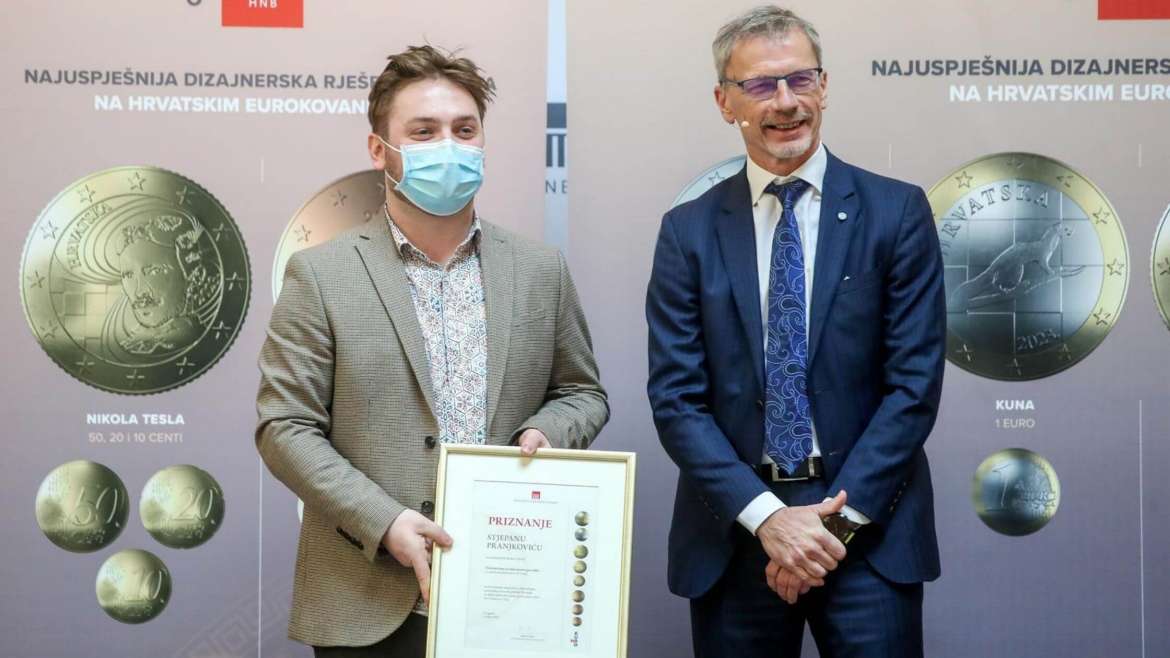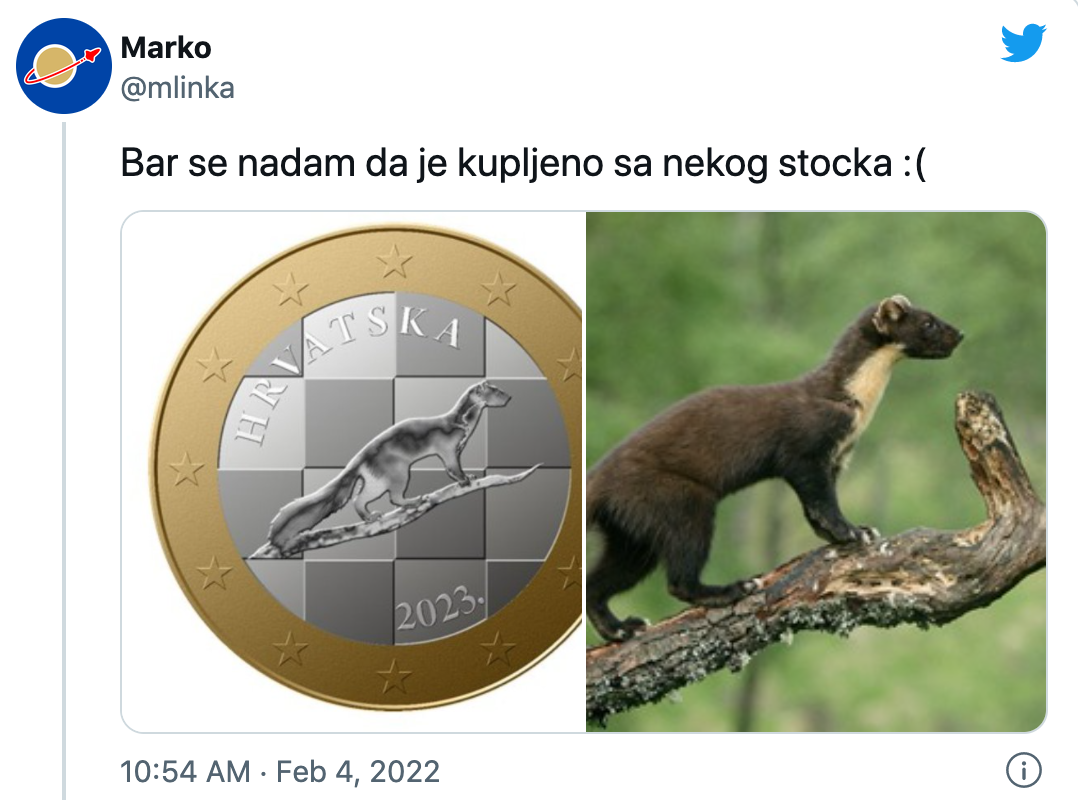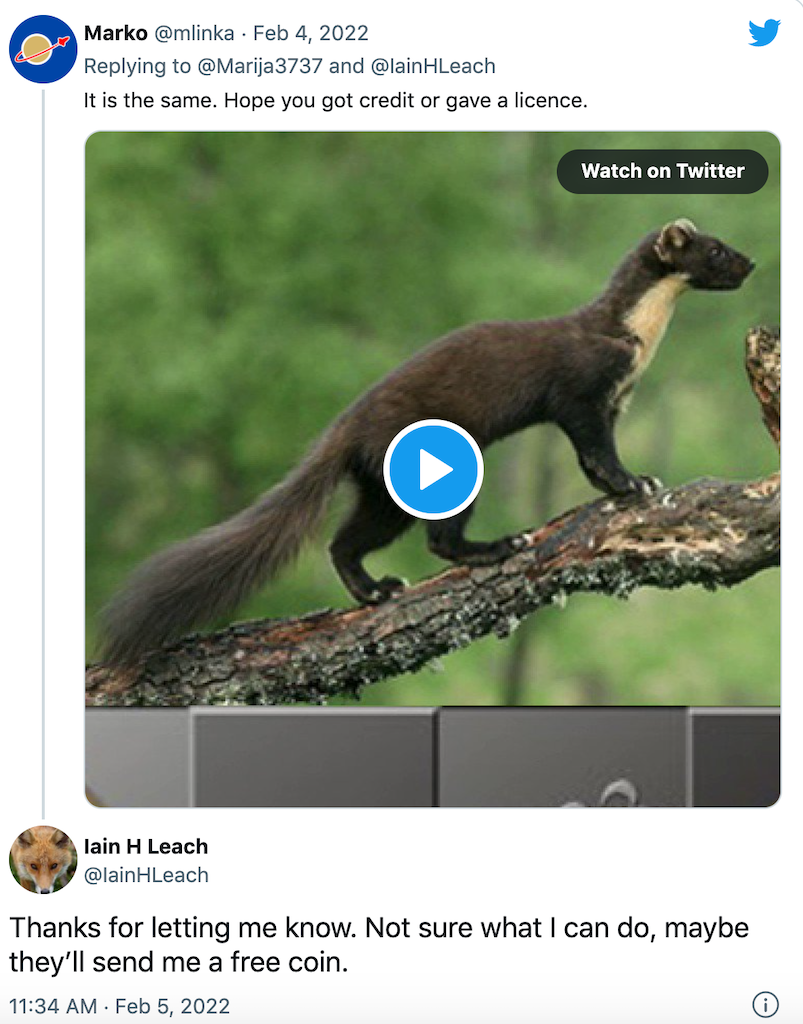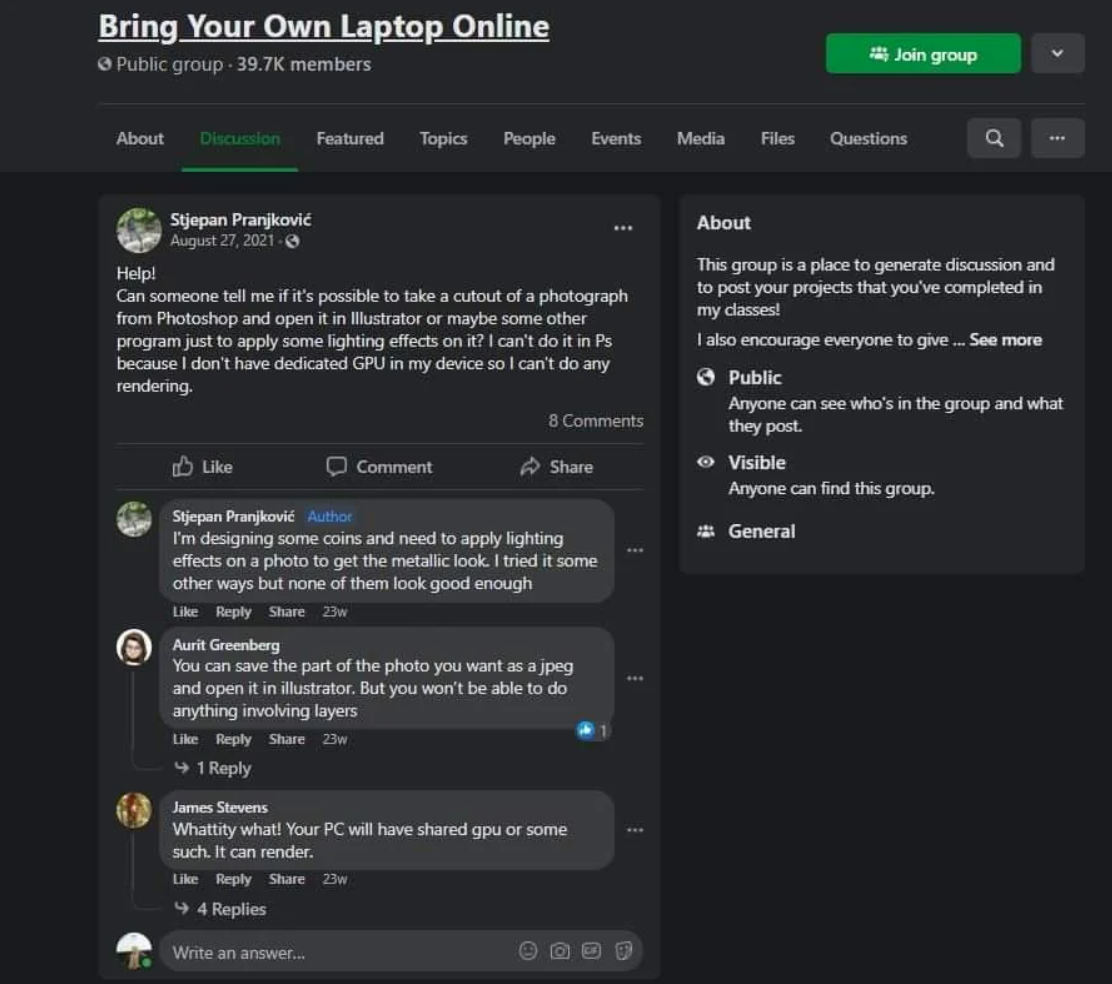New Car Sales Up 1.9% in January Year-on-Year
7 February 2022 -This January, 2,971 new passenger vehicles were sold in Croatia, up 1.9% or 56 more vehicles than in January 2021 when 2,915 were sold, the Promocija Plus market research agency said on Monday.
Škoda sold the most passenger vehicles in January, selling 365 vehicles, which accounted for 12.3% of all sales.
Volkswagen ranked second with 347 new cars sold, a share of 11.7%, and Kia was third with 224 cars sold, a share of 7.5%.
The Škoda Octavia was the best selling model in January with 185 sold cars, followed by the Dacia Duster with 114 cars sold.
This year's first figures indicated that more buyers are opting for hybrid vehicles as against diesel fuel cars. In January 1,477 or 49.7% of the vehicles sold were petrol cars while only 659 or 22.2% were diesel cars and 584 people bought a hybrid car which is a solid share of 19.7%.
Car buyers purchased 142 natural gas-run cars (4.8%) while 109 or 3.7% of new car owners opted for an all-electric vehicle, Promocija Plus reported.
Proposal for New Hydrogen Strategy Until 2050 Presented
7 February 2022 - The main aim of the new 2021-2050 hydrogen strategy is to stimulate the production and use of hydrogen to replace fossil fuels, Vjekosalv Jukić from the Ministry of Economy and Sustainable Development said on Monday, presenting a proposal of the strategy.
The Croatian Chamber of Commerce (HGK) reported that the proposed strategy has been put to public consultation which will last until 27 February.
"Production is based on low-carbon hydrogen, emphasis is on developing new technologies, that is water electrolysis, and there is also pyrolysis or waste gasification. We will endeavour to make production sites also consumption sites in order to relieve the energy system. That will help in the short term also with regard to storage and in the long term with repurposing existing infrastructure for storage and transport, primarily existing gas pipelines but also the construction of new ones," explained Jukić.
On the other hand, to intensify hydrogen use in transport, it is important to obtain hydrogen-powered vehicles as well as build fueling stations, hence the strategy focuses on investing in electrolyzers and fueling stations.
Essential for that is the education of experts, the development and commercialisation of new technologies, and a potential regional hydrogen centre conceived as the central point for connecting science and the economy, Jukić said.
The domestic economy is faced with a long, expensive and complicated process of energy transition and hydrogen should be an important component of it because, as a fuel of the future and a renewable, it is also a solution for decarbonising industrial processes and the economic sector.
The Director of the Industry and Sustainable Development Sector at HGK, Marija Šćulac Domac, said that hydrogen will be very important for many sectors in maintaining competitiveness. She added that there are some 200-odd projects in the world developing and applying hydrogen technology, with 55% of that being in the EU.
"With its hydrogen strategy, Croatia should enter that prestige club of countries developing their own technologies and contributing more concretely to achieving the EU's green objectives," said Šćulac Domac.
Croatia will have significant funds at its disposal for energy transition from various programmes, both national and European, she added.
The head of the Energy Administration in the Economy Ministry, Kristina Čelić, said that the strategy is particularly important for the transport sector, sea, rail and road, and that it provides a great opportunity to protect the Adriatic from fossil fuels.
She underscored that the objective is for 40% of energy consumption by 2030 to be from renewable sources.
COVID Certificates to Stay, Interior Minister Says
7 February 2022 - COVID certificates will not be abolished for the time being, the head of the COVID-19 crisis management team, Interior Minister Davor Božinović, said on Monday, refuting chief epidemiologist Krunoslav Capak's announcement that they might be partially abolished.
"From the start, we introduced a restricted COVID certificate mandate in Croatia and are following everything that is going on. However, the measure will stay for the time being, including the use of COVID certificates as it is," Božinović told the press.
Capak said earlier today that a partial abolishment of COVID certificates was being considered because they are losing in importance since the appearance of the Omicron variant and the fact that this year Croatia has registered 40,000 reinfections.
Božinović said the crisis management team would continue to follow developments in Croatia, the world and Europe, recalling that in some European countries it is not possible to enter a bar, a restaurant or a hotel without a COVID certificate, and that Germany has announced easing restrictions just before Easter.
"At the moment, we are still not in that situation," he said, adding that incidence in Croatia is still high.
"Let's be realistic, those advocating a major abolishment (of restrictions) have higher vaccination rates," he said, but would not specify the number of new daily cases which would be acceptable to abolish the certificates.
Božinović said 125,000 infections had been detected since the certificates were mandated in public services and that this had slowed down the spread of the virus and ensured the functioning of all public services.
Letter to border police on how to treat migrants
The minister also commented on a letter to border police on how to treat migrants, saying that it consisted of instructions which took into account vulnerable groups and respect for the law and that they were police station-level guidelines.
He added that the instructions stated that "consideration should be given with regard to video recordings and other activities that are not allowed in border areas under the law," adding that there was nothing contentious about that.
President Receives Authors of Book on Croatian Diplomacy
7 February 2022 - President Zoran Milanović on Monday received the authors of the book "Diplomatski pečat - sasvim osobno" which collects 105 personal stories and reminiscences by diplomats who were the creators and actors of Croatia's foreign policies.
The authors are Goran Bandov, Zagreb University professor of international relations and diplomacy, Jelena Perleta, journalist and editor at Croatian Television's foreign desk, and Ivana Petrović, reporter, commentator and foreign desk editor at Nova TV.
The book, whose title translates as "Diplomatic seal - quite personally", was launched ahead of the 30th anniversary of Croatia's international recognition. It encompasses stories by diplomacy doyens, Croatian presidents, prime ministers, foreign and European integration ministers, ambassadors and consuls-general.
Croatia Logs 1,942 New Coronavirus Cases, 57 deaths
7 February 2022 - In the last 24 hours 1,942 coronavirus cases have been confirmed in Croatia, and 57 persons have died, the national COVID-19 crisis management team said on Monday.
Last Monday there were 2,561 new cases. In the last 24 hours, 3,317 persons have been tested.
Currently there are 44,578 active cases, 21,314 persons are self-isolating, and 2,191 COVID patients are hospitalised, including 178 on ventilators.
Croatia has registered 985,050 coronavirus cases and 14,194 deaths to date. Also, 56.64% of the population has been vaccinated, that is, 67.39% of adults, of whom 65% fully.
Ambassador Says Serbia, Croatia Need to Intensify Political Cooperation
7 February 2022 - Political cooperation between Serbia and Croatia needs to be stronger, Croatian Ambassador in Belgrade Hidajet Biščević said in an interview with a Belgrade newspaper on Monday, stressing that economic cooperation and trade were good and that cultural cooperation was increasingly good.
"I have to be honest and say that our political cooperation needs to be stepped up... there have been, for a long time, no meetings at the highest level, too often daily events, statements and incidents set us back. At the same time, that has almost no effect on our economic cooperation and trade, while cultural cooperation has been increasingly more relaxed," Biščević told the Monday issue of the Kurir tabloid.
The ambassador said that a large portion of ordinary citizens, on both sides, ignore old stereotypes and that new generations are coming for which, "despite the parallel histories", "new windows are slowly opening in many ways."
Asked to comment on his statement that "the legacy of the past is too big and has lasted too long", Biščević suggested that "time and patience" as well as "turning to a culture of cooperation instead of insisting on old stereotypes" are necessary.
Asked to comment on announcements in Croatia that Zagreb would block Serbia's accession to the EU, the ambassador categorically dismissed the claims as incorrect.
"I have said on many occasions here that Serbia's EU membership is Croatia's key strategic interest, for us to be part of the European family, share the same values and standards, regulate our relations in the European spirit of tolerance, respect for differences and non-interference in each other's internal affairs, and for the European context to serve as a platform for us to overcome the past," Biščević said.
He added that Croatia setting conditions, slowing down or delaying "the realisation of that clearly stated strategic interest" would be a paradox.
He stressed EU entry talks were not about setting conditions or blockades but about "respect for the negotiating rules."
"The EU has clear fundamental negotiating rules and conditions - those who do not accept them block themselves and shifting responsibility to a member state is of no help," he said.
Commenting on the case of Matej Periš, a young man from Split who went missing in Belgrade in the night between 30 and 31 December 2021, the ambassador said that there were a lot of unknowns in that case, but noted that Serbian police were doing their job professionally and with commitment and that they had been cooperating with Croatian police on the case.
Rijeka Landmarks to Light Up Red for Heart Defect Awareness Week
February 7th, 2022 - The City of Rijeka is participating in the Congenital Heart Defect Awareness Week, observed every year from February 7th to February 14th world-wide
The cranes on the Molo Longo waterfront in Rijeka and the fountains in the city centre will be lit bright red starting from tonight, reports Novi list.
As announced by the City of Rijeka, the city is joining the initiative of the Association Big Heart for a Small Heart (Croatian: Veliko srce malome srcu) and drawing attention to the cause by lighting some of the prominent city landmarks red for a week.
Big Heart for a Small Heart is a non-profit charity association of medical doctors, health care professionals and parents of children with congenital heart defects and other heart diseases.
The main goals of the Association are to raise awareness of the need for early detection of heart defects, encourage their timely and proper treatment, raise funds for medicines and devices required for treatment, and provide psychological support to parents of children with heart diseases or heart defects.
The association also aims to raise awareness of the public about what it means to be a child with a congenital heart defect or disease, as well as what it means to be their parent or doctor.
Croatia's Zrinka Ljutić Debuts at 2022 Winter Olympics, Takes 28th in Giant Slalom
February 7, 2022 - Young skier Zrinka Ljutić was the only Croatia representative in the women's giant slalom race at the Winter Olympics in Beijing on Monday, taking 28th place.
After Covid measures prevented Croatia's best skier Leona Popović from competing, another more experienced skier, Andrea Komšić, was unlucky with her giant slalom performance. While warming up for the race, she experienced a stiff neck and back pain and did not show up for the start of the race, reports HRT.
Zrinka Ljutić was 36th after the first run, 4.94 seconds behind the Olympic winner, Sweden's Sara Hector. After the second run, she was 28th, 8.08 seconds behind Hector. The silver medal was won by Italian skier Federica Brignone (+0.28), and the bronze by Swiss skier Lara Gut-Behrami (+.0.72).
"I am not satisfied with how I fell behind, and I did not ride well, although I did not have the feeling that I was that far behind. However, the conditions are excellent, and I’m really sorry I didn’t take advantage of that. This is a new experience for me, and I hope to be smarter on another occasion," the 18-year-old Ljutić commented on her Olympic debut in Beijing, adding:
"The first ride was not great, and I didn't have that feeling when I was skiing. I actually felt fine, even though I had a lot of speed, so I was shocked when I reached the finish line. I later realized how much more I needed to let go, look for more speed, and go a lot cleaner and more direct. Then I tried to fix all those things in the second run, and I really threw myself on my head. I’m glad I managed to connect at least a couple of good turns in some places where I didn’t get in the first run. I’m 28th, which doesn’t sound bad. In a couple of years, no one will remember that half of them dropped out. I entered 28th. I learned a lot; a lot of work awaits me."
To read more about sport in Croatia, follow TCN’s dedicated page.
Stjepan Pranjković Withdraws His Croatian Euro Coin Design Proposal
February 7, 2022 - After four days of controversy over an alleged case of plagiarism, Stjepan Pranjković finally decided to withdraw his Croatian euro coin design proposal.
On February 4, Total Croatia News shared the official announcement by the Government and the Croatian National Bank (CNB) regarding the four winners of the Croatian euro coin design proposal competition. In a government session that day, it was confirmed that the 2 euro coin would feature the geographical map of Croatia; the 1 euro coin would feature the kuna, the symbolic animal of Croatia; the 50, 20, and 10 cent coins would feature Nikola Tesla; and that the 5, 2 and 1 cent coins would feature the Glagolitic alphabet.

Stjepan Pranjković with Boris Vujčić, Croatian National Bank Governor. (Photo: Igor Kralj/PIXSELL)
The four winners were present at a symbolic event after the session, where each one offered more details about the creative process behind their Croatian euro coin design proposal and also received a special gift from the Croatian National Bank. It is also known that each of the winners would receive a prize of 70,000 kunas.
Public reaction was mixed. While some applauded the designs, some others criticized them. Many, for example, considered that choosing the map of Croatia was a very simple and easy idea, and others also called Nikola Tesla's coin part of political propaganda about the debate on its origins.

However, the biggest controversy would come the next day when suspicions began to spread on social networks about an alleged case of plagiarism. Some people found the design of the one-euro coin quite familiar, specifically because of the kuna animal layout. Thus, several users began to find little coincidence in the resemblance between the design of the coin and the image of the British wildlife photographer Iain H Leach of a pine marten, the name by which the animal is known in English.

Shortly after, they managed to make contact with Leach, who in turn expressed his ignorance of what happened and, in addition, criticized that his permission was not requested to use an image that in the end would win a prize of at least 9,300 euros. Some users even shared a screenshot in a public Facebook group called Bring Your Own Laptop Online, where Pranjković would have asked for help to transform the photo into editing software, by adding special lighting effects to give it a metallic look.

Finally, after several days of intense criticism, Telegram.hr reports that Pranjković sent a letter to the Croatian National Bank in order to withdraw his proposal and also apologize for the unpleasant atmosphere created by the controversy.
"It was a great honor for me to participate in the process of selecting the national side of the Croatian euro coin. However, motivated by the unpleasant atmosphere created in the media and social networks, as well as the pressures I was exposed to regarding my design of the reverse of the one euro coin with a kuna motif, I decided to withdraw my design proposal for this motif and waive any rights to on the basis of participation in the competition for the motif of a one-euro coin", said Pranjković.
"I made this decision so as not to aggravate this situation or contribute to further possible uncertainties. I am sorry that there have been controversies regarding my work that could harm this important process for the Republic of Croatia. I did not intend to hurt anyone's feelings, so I apologize to everyone, especially to the Croatian National Bank, the Government and the Croatian public ", concluded Pranjković.
The CNB's Money Commission announces that it will hold an emergency session today and will comment on Pranjković's letter. By the way, after the media suspected that Pranjković used someone else's photo for his design, the CNB's Commission reported yesterday that they had launched an urgent inspection of his design.
Speculation regarding the possible alternatives has been present on social networks, with some proposing that the original photographer be credited, that another design be used that also has the kuna as a motif, and others also propose that an entirely different motif be used. However, the outcome of the Croatian euro coin design proposal is uncertain pending the CNB investigation.
For more, check out our lifestyle section.
Croatia to Turn to India, Nepal and Distant Labour Markets in Search for Workers
7 February 2022 - Croatian employers will have to seek workers on distant markets, as they cease to be interesting to job-seekers from Serbia or Ukraine, the Večernji List daily reported on Monday in an article headlined "We are no longer interesting to Balkan workers...".
The daily newspaper quotes a member of the Croatian Employers' Association (HUP), Petar Lovrić, who has a recruitment agency, as saying that employers should turn to labour markets in Bangladesh, Nepal or India, for instance.
In 2022, Croatia is likely to seek about one hundred thousand workers, mainly for short-term seasonal jobs.
The daily says that the situation is similar in some other European countries. For Instance, Switzerland will need thousands of skilled workers, and according to some estimates by 2025, it will be short of 375,000 highly skilled workers. This shortage will widen to 1.2 million by 2035.
As many as seven million foreign workers would need to be hired by Germany until 2035 to enable its economy to maintain this rate of development, the Zagreb-based daily reported.
Currently, in Austria, there are twice as many advertised vacancies than a year ago.
A former economy minister turned economic analyst, Ljubo Jurčić, is quoted as saying that well-educated professionals are globalists and added that Western European countries base their long term economic policy on immigration quotas.
Thus, Germany imports 400,000-600,000 workers annually, and Jurčić believes that Croatia will have to follow this model soon.
In the past, Germany received immigrant workers from the Balkans and Turkey, and now Germany is looking towards employees from Columbia, Mexico, Indonesia etc., the daily says.


